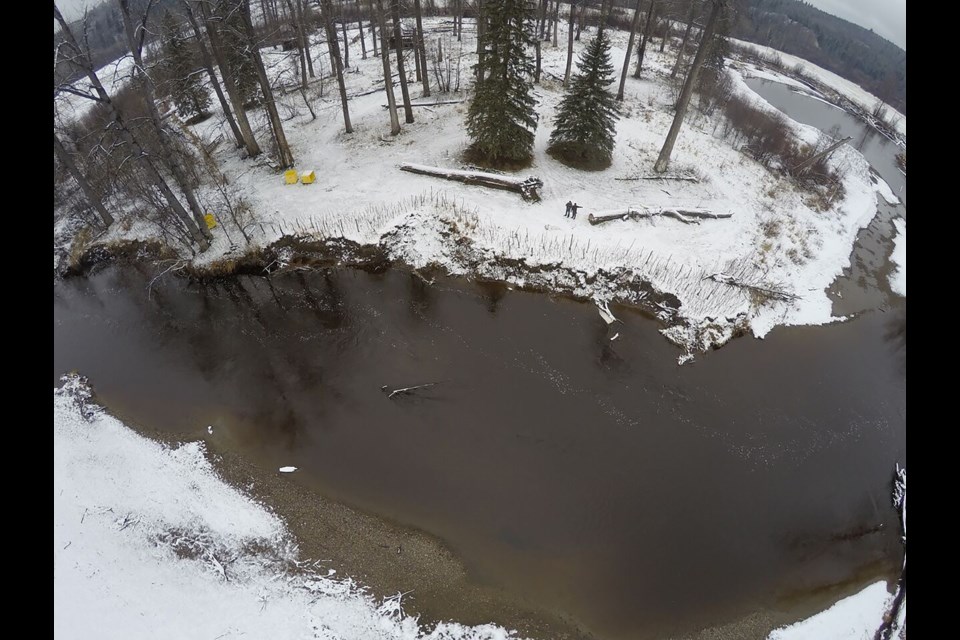The College of New Caledonia's Natural Resources and Forest Technology (NRFT) program is collaborating with community, government and industry partners to develop innovative approaches to river and stream restoration in northern B.C.
The project, which focuses on areas affected by industrial use and land use changes, is operating just west of Prince George on the Chilako River.
"The river's watershed has been heavily modified from the mountain pine beetle, as well as land use changes associated with forestry and agriculture," said Hardy Griesbauer, director of Applied Research and Innovation at CNC. "As a result, the river's ability to provide fish and wildlife habitat has been compromised."
Starting in 2016, the province of BC and the Upper Fraser Fisheries Conservation Alliance with Fisheries Technicians from the local First Nation Communities of Lheidli T'enneh and Carrier Sekani Tribal Council installed large woody debris in the channel and planted willow and cottonwood trees along a six kilometre stretch of the river to stabilize river banks and help create more habitat for Chinook salmon.
CNC continues to measure the changes in the river system, including fish habitat and riparian surveys, as well as tree planting survival. These research activities are incorporated into CNC's classwork and help train students on techniques in environmental restoration and monitoring and create real experiential learning opportunities.
"Students are able to observe the efforts required to repair a degraded ecosystem and link concepts learned in the classroom through discussions in the field", said Andrea Erwin, researcher and CNC NRFT instructor. "They also participate in data collection activities to use for their capstone research projects."
The College is also collaborating with two local environment consultants, Environmental Dynamics Inc. and Avison Management Services, as well as UNBC to research the viability of drones when conducting fish surveys and environmental assessments.
"Preliminary results from this research project are encouraging," Griesbauer said. "River banks are starting to stabilize and plantings are surviving. Over time, the team will continue to monitor for further improvements to fish habitat in this river system, as well as other wildlife use."
CNC President Henry Reiser said partnerships continue to be a critical part of extending learning in the community for the College's students.
"We are thrilled at the preliminary results of this research," he said.



